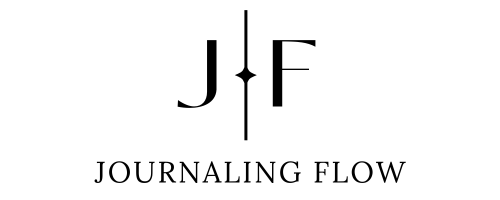
If you’ve been curious about starting a journaling practice but aren’t sure where to begin, you’re in the right place. Whether you want to boost your mental health, improve productivity, or focus on personal development, journaling is an incredible tool that can help you achieve these goals. Best of all, journaling is simple, affordable, and accessible to everyone.
In this guide, we’ll explore the benefits of journaling and give you easy steps to help you start journaling today.
Why Journaling is Beneficial
1. Mental Health and Emotional Clarity
Journaling offers a private space to unload your thoughts and process emotions, which can be incredibly therapeutic. Writing about your experiences can reduce anxiety, help manage stress, and improve overall emotional well-being. Many people find clarity in situations that feel overwhelming by expressing their thoughts in a journal. Regular journaling helps you navigate your feelings and offers insights into your mental and emotional state.
2. Boosts Productivity and Focus
Feeling like your to-do list is never-ending? Journaling can help you organise your thoughts and tasks, leading to improved productivity. By writing down your goals and daily priorities, you can focus better and make clear, actionable plans. Journaling also helps track progress, break down larger projects, and reflect on what’s been achieved—key for maintaining motivation. Taking a few minutes each day for journaling can significantly shift how you approach your tasks.
3. Encourages Personal Development
Journaling is a powerful tool for self-reflection, allowing you to examine your thoughts, actions, and habits. When you journal regularly, you increase self-awareness and can notice patterns or recurring themes in your life. This makes it easier to identify areas for personal growth and track your progress over time. Journaling is also a creative outlet that helps you explore new ideas, set goals, and dream big.
Simple Steps to Start Your Journaling Practice
If you’re new to journaling, the hardest part can be just getting started. Here’s how to make journaling a simple, enjoyable habit:
1. Choose Your Tools
Start by deciding how you want to journal. Some people love the tactile feel of a pen and paper, while others prefer typing on their computer or phone. If you’re a beginner, keeping it simple is key: grab a notebook and pen, or open a blank document or note-taking app. Journaling doesn’t need to be fancy—the important thing is consistency.
2. Set Aside Time
Establish a regular time to journal, whether it’s first thing in the morning or before bed. Aim for 5-10 minutes at first, building the habit gradually. Journaling at a set time each day makes it more likely that you’ll stick to it. View it as a self-care ritual and an opportunity to reconnect with yourself.
3. Start Small and Be Gentle With Yourself
Don’t feel pressured to write pages or craft the perfect entry—journaling is a personal practice, and there are no rules. Start by responding to simple prompts like, “What am I feeling right now?” or “What are three things I’m grateful for today?” If you’re feeling stuck, try freewriting—just write whatever comes to mind without worrying about structure or grammar. The goal is to release your thoughts, not create a masterpiece.
4. Explore Different Journaling Techniques
There’s no one-size-fits-all approach to journaling, so experiment with techniques that resonate with you:
- Gratitude Journaling: Write down three things you’re grateful for each day. This simple practice helps shift your focus towards positivity.
- Bullet Journaling: A more structured approach where you create lists, track habits, and outline tasks. Great for productivity and organising your thoughts.
- Stream-of-Consciousness Writing: Let your thoughts flow freely without editing or filtering. It’s a powerful way to process emotions and let go of mental clutter.
- Vision Journaling: Use journaling to set goals and visualise your future. Writing down your dreams can help you clarify what you want and map out steps to achieve it.
5. Reflect Regularly
Over time, journaling becomes a valuable tool for self-reflection. Set aside moments to look back on your entries. You might be surprised to see patterns or progress you hadn’t noticed. This reflection can help you understand how you’ve grown, what you’ve achieved, and what areas still need focus.
Final Thoughts: You Don’t Have to Be Perfect
Remember, journaling isn’t about writing perfectly. It’s about expressing yourself and connecting with your inner world. Some days you’ll write a lot, and other days just a few lines. That’s okay! Journaling is a personal practice where every word, no matter how simple, is valuable.
If you’re looking for a powerful way to boost your mental health, increase productivity, and promote personal growth, journaling is the perfect tool to get started. All it takes is a few minutes each day to start seeing the benefits.
Want more journaling inspiration?
Get exclusive prompts, techniques, and insights straight to your inbox.
Join the Journaling Flow newsletter today!


